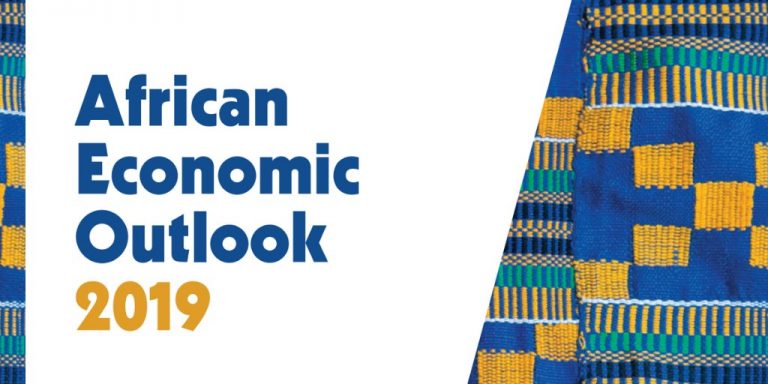The African Development Bank Group (AfDB), on Tuesday projected that the African continent would grow by a robust 4% this year on the back of recovery in commodity prices that would drive domestic demand and infrastructure investment, even as that of Nigeria, which accounts for nearly 20% of continental GDP and 75% of the West African economy, is projected to grow at 2.3%.
Addressing diplomats at a lunch of the bank’s flagship publication, the African Economic Outlook 2019, in Abidjan, Cote d’Ivoire, AfDB President, Dr. Akinwumi Adesina declared that “the future of our continent is looking very promising indeed.”
This recovery in commodity prices, he continued will further push the continent’s GDP to 4.1% next year, as economic opportunities in Africa keep generating considerable interest globally.
According to the outlook, Nigeria’s economy recorded 1.9% growth in 2018 and is expected to rise by 2.4% in 2020, on the back of the Federal Government’s faithful implementation of the Economic Recovery and Growth Plan (ERGP).
The bank however warned that “the slide in oil prices from late 2018, coupled with an output cut imposed by the Organization of the Petroleum Exporting Countries poses a downside risk to the economic outlook.”
It added that the National Assembly’s late passage of the government’s N8.83tr 2019 “budget of continuity” may also be delayed due to presidential elections scheduled for February 2019.
There is need, the report continued, for a reorientation of the nation’s federal budget, currently dominated by recurrent spending, toward more capital expenditure and accumulating savings to sustain social spending.
It noted the federal government’s “strides with institutional and governance reforms, including implementation of the Integrated Financial Management and Information System and the Integrated Payroll and Personnel Information System.
“The enactment of the Secured Transactions in Movable Assets Act 2017 has institutionalized and widened coverage of collateral to stimulate lending to small and medium enterprises,” it added.
AfDB also hinged its projection “on the pace of implementing the Economic Recovery and Growth Plan, which anchors Nigeria’s industrialization by establishing industrial clusters and staple crop processing zones to give firms a competitive edge through access to raw materials, skilled labor, technology, and materials.”
If effectively implemented, it believes the government’s Power Sector Reform Programme with a target of 10 gigawatts of operational capacity by 2020 could attract private investment.
Although Nigeria has a relatively low debt-to-GDP ratio, the bank called for “fiscal prudence to avoid a debt trap, especially as global interest rates start to rise. Therefore, contraction of new external debt should balance spending needs with capacity to improve the economy’s competitiveness and stimulate growth.”
the report lamented that its exports to the rest of Africa are estimated at a mere 12.7%, and only 3.7% of total trade is within the Economic Community of West African States.
Nigeria has yet to ratify the Continental Free Trade Agreement, pending the outcome of broad consultations with captains of industry and other stakeholders.
Still on the continent, the AfDB believes that the agreement in March 2018 establishing the African Continental Free Trade Area (AfCFTA) will create the largest free trade area in the world, offering an unprecedented framework with the capacity to increase trade by at least 100% in Africa.
“The African Development Bank is at the centre of the actions taken to ensure the success of the continental free-trade area. We have invested over one billion dollars to support the financing of trade in Africa,” Adesina said.
The Bank, whose triple-A rating with stable outlook has been reconfirmed by the four major global rating agencies, has also invested $1bn in Afreximbank, including $650m in credit lines for trade finance and $350m in insurance.
The free movement of people on the continent is another important driver of development, as part of the “need to break down all barriers that impede the free movement of people across the continent, especially that of workers, because this is vital for promoting investment,” Adesina said.
In its report on intra-African investment, the bank emphasised the significant increase in cross-border investments, which jumped to $12bn last year, from just $2bn in 2010.
According to a statement by the bank, under the G20 Compact with Africa, the AfDB has worked with the World Bank and the IMF to provide assistance to African countries, particularly to improve company regulations and the business environment.
“Africa will not develop through aid, but through investment”, said Adesina, hence the need for the AfDB, with its partners, launched the highly successful Africa Investment Forum (AIF), held in Johannesburg, South Africa last November, which helped to secure investment interest in 49 deals across Africa worth over $38bn in just two days.
The African Development Bank continues to invest in infrastructure to connect countries and improve their competitiveness. It has provided $16 million to the Economic Community of West African States (ECOWAS) for the preparation of feasibility studies for the Lagos-Abidjan corridor. It has also funded 1000 kilometres of road between Addis Ababa and Mombasa, which has increased trade fivefold between Ethiopia and Kenya.
The Bank was the lead lender for the construction of the historic Senegambia bridge linking Gambia and Senegal, which opened on 21 January 2019, just as its investment portfolio in Côte d’Ivoire has tripled in the last three years, reaching $1.8bn last year.
The bank is taking a lead role in the “Technologies for African Agricultural Transformation” (TAAT) initiative, which seeks to accelerate the dissemination of agricultural technologies throughout the continent, not only to improve yields, but also ato fight against the consequences of global warming and against pests, such as Fall Armyworm. “The crucial point for the economic development of Africa is that we have to radically transform our agriculture,” Adesina declared.







